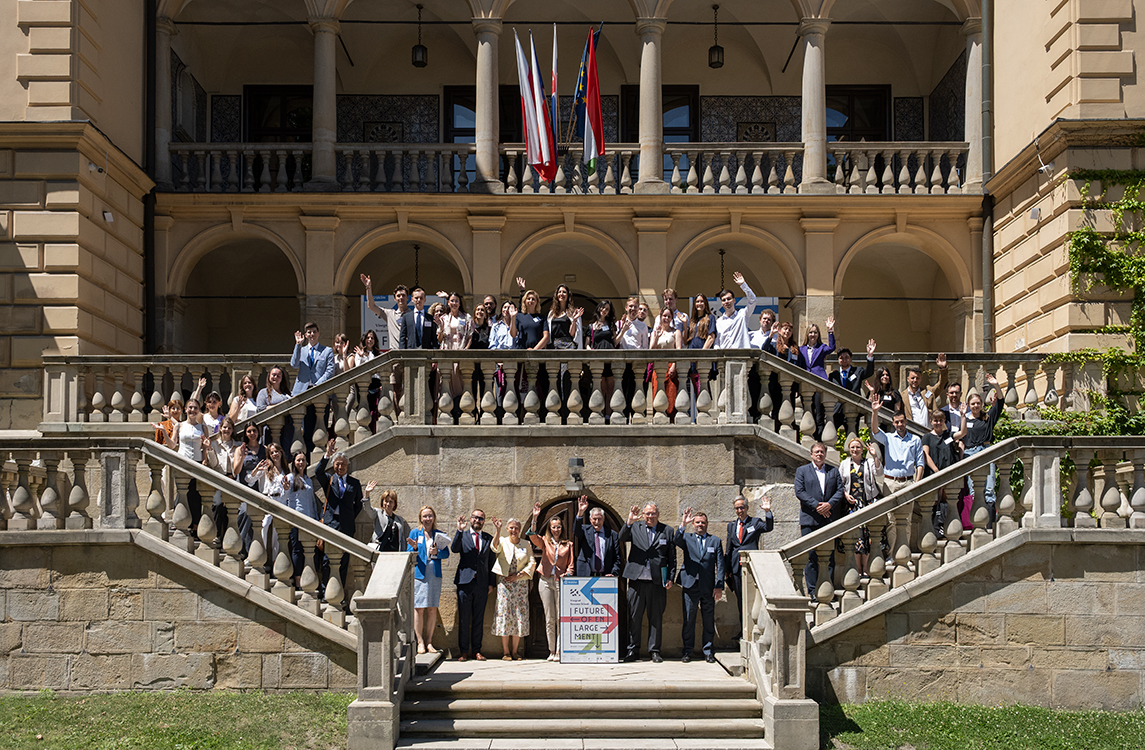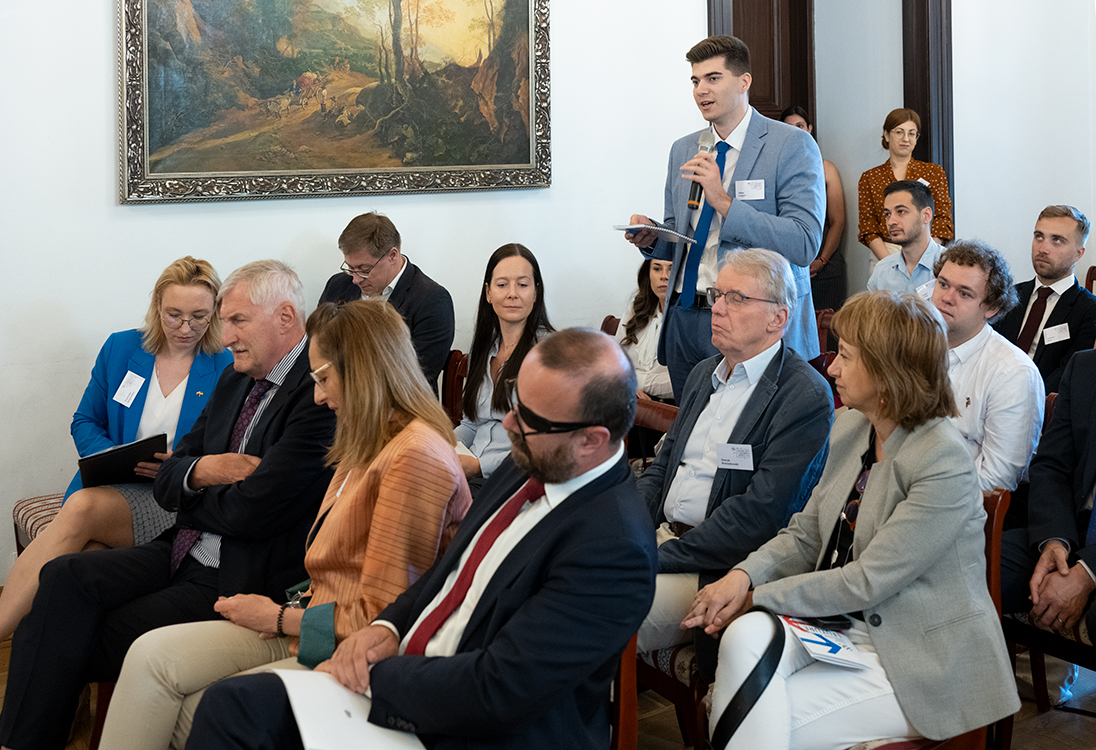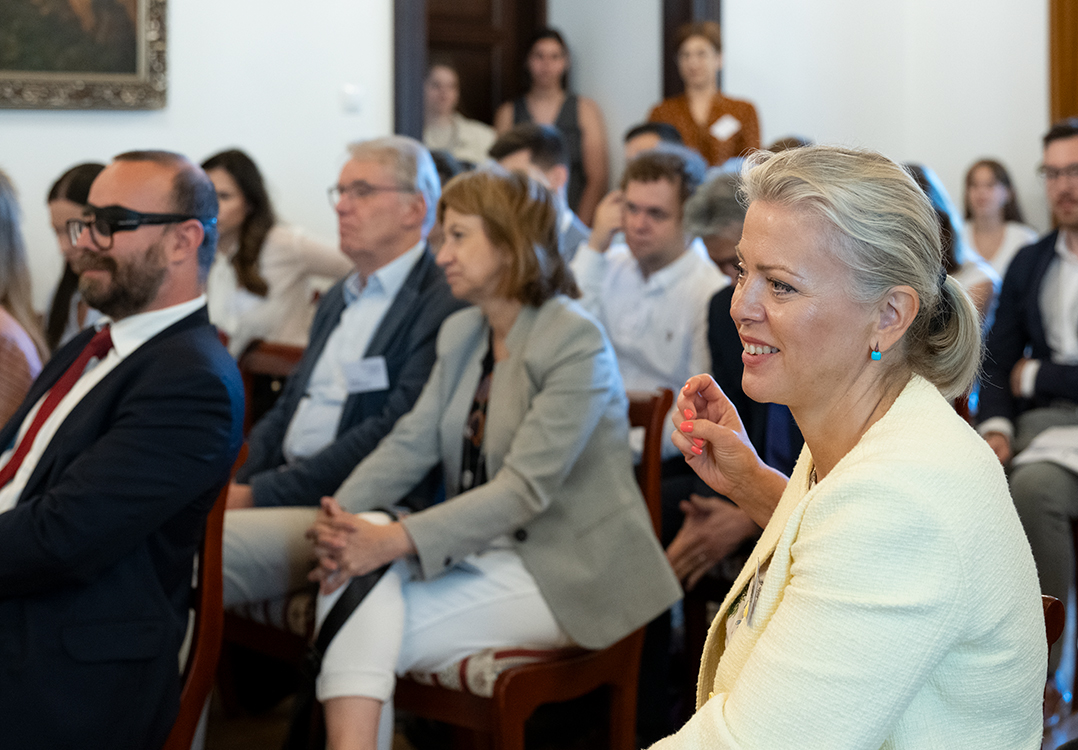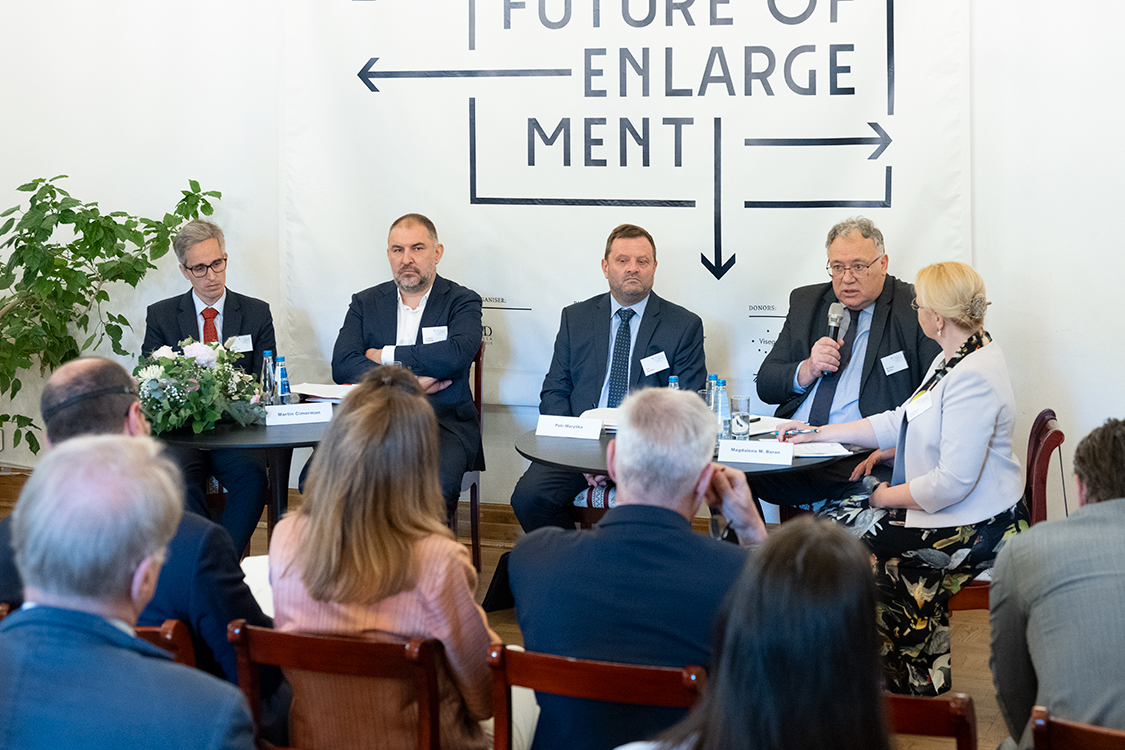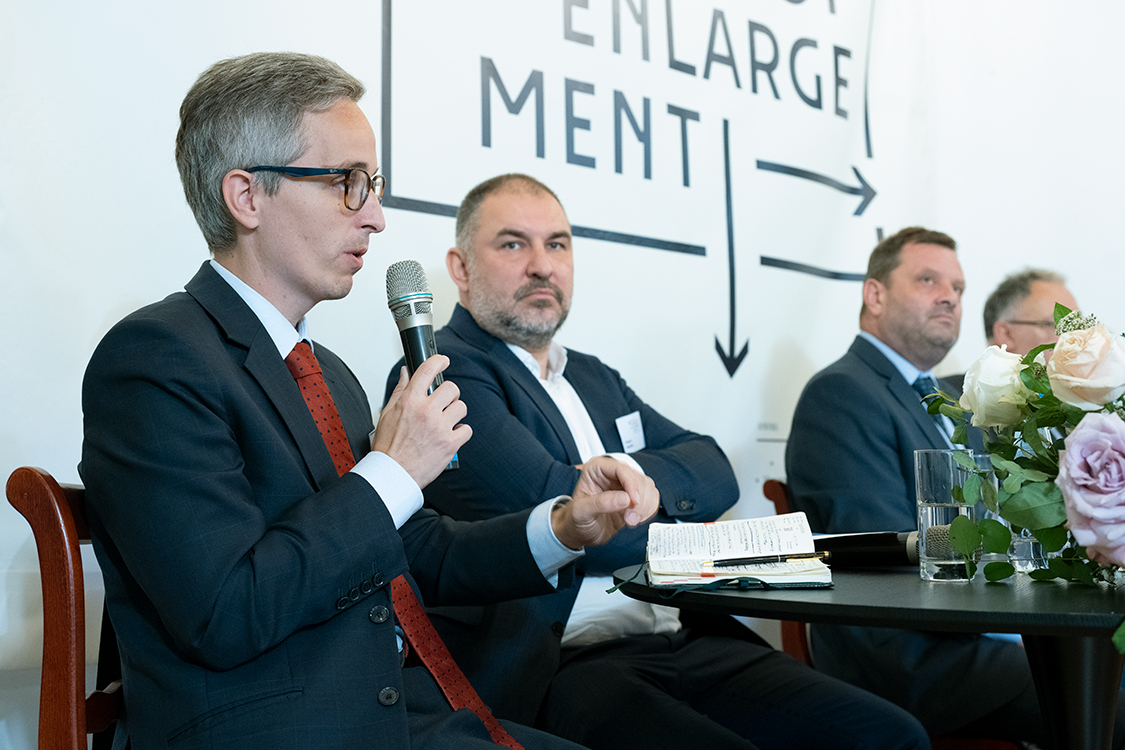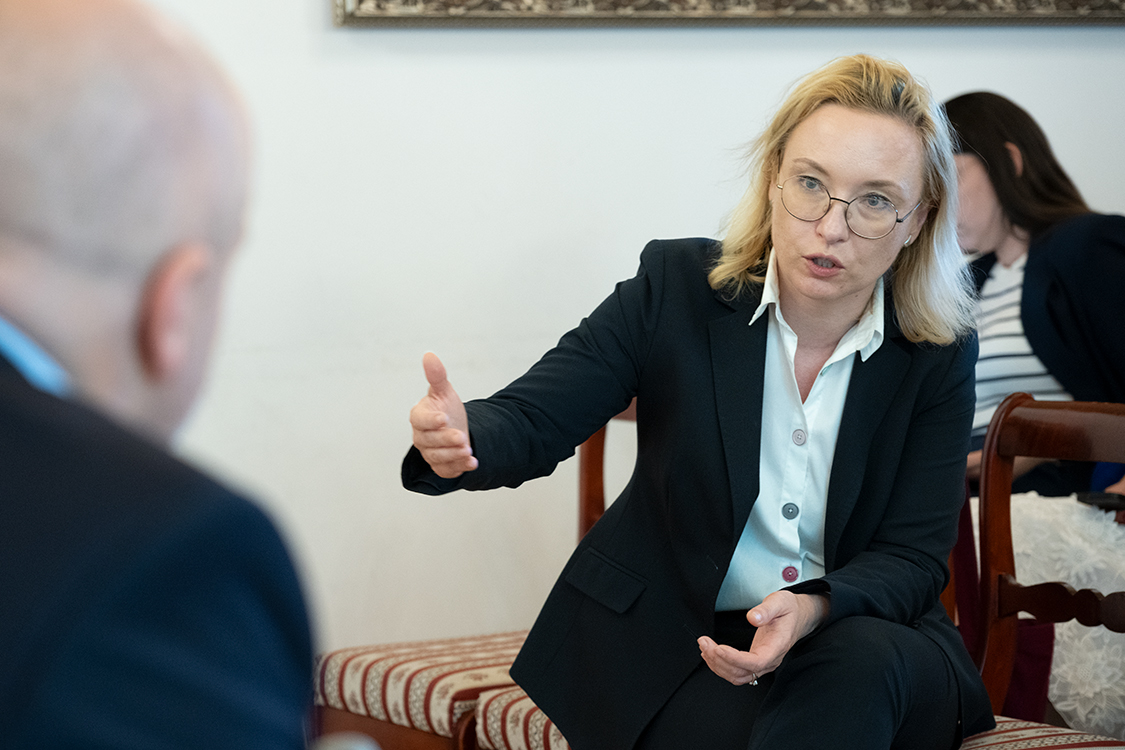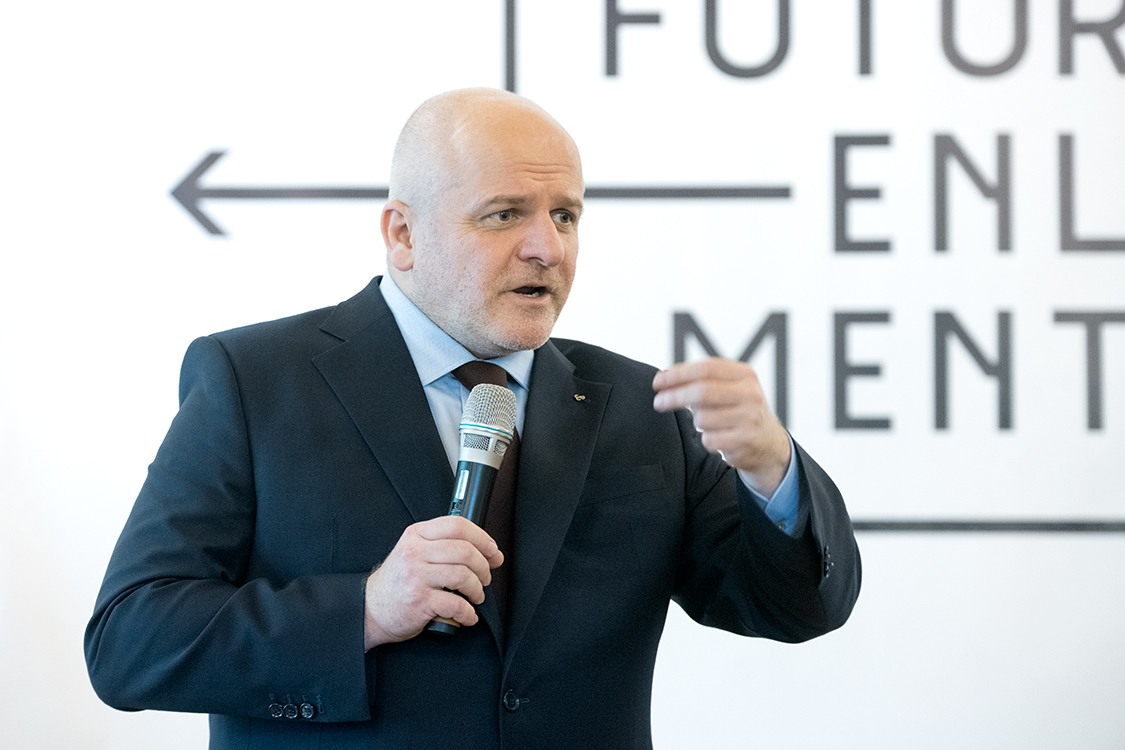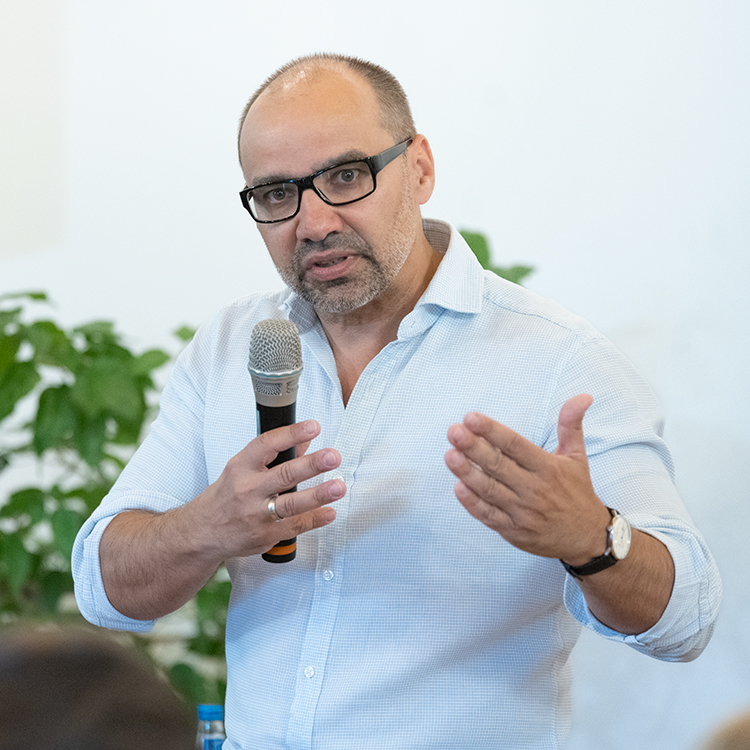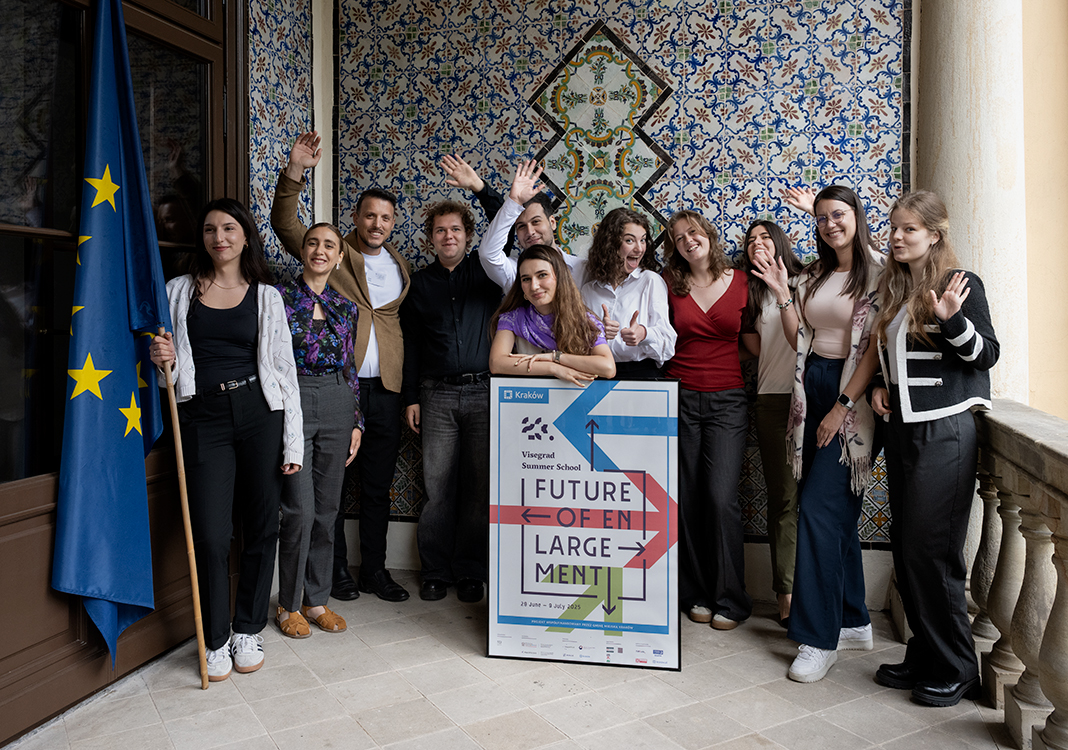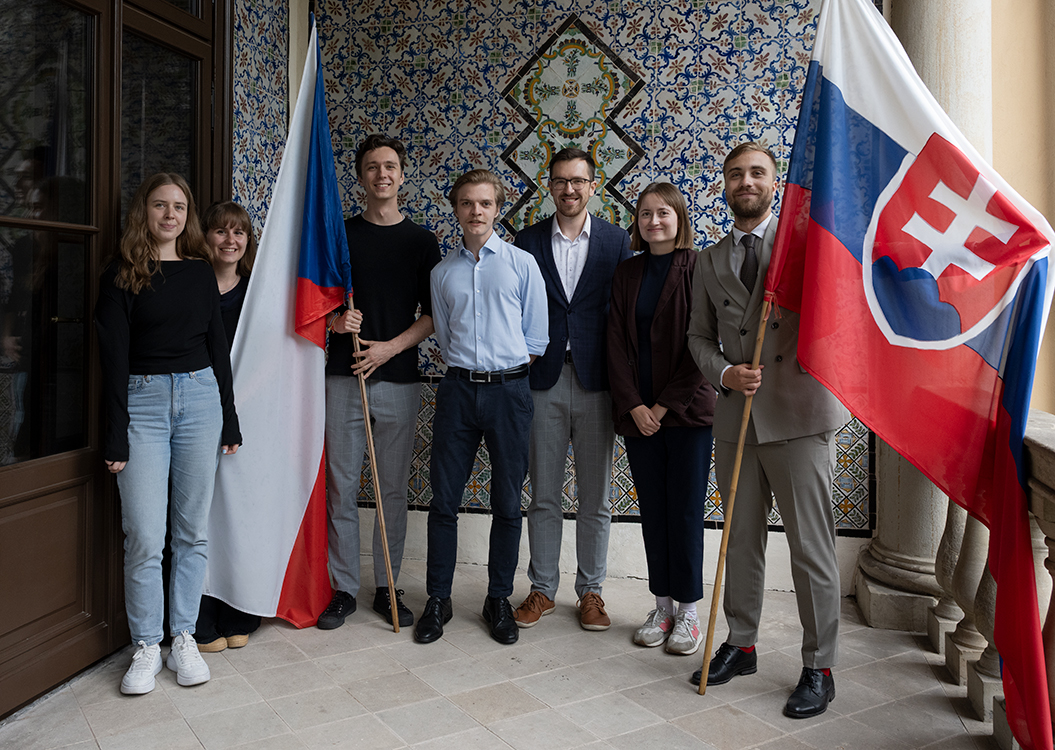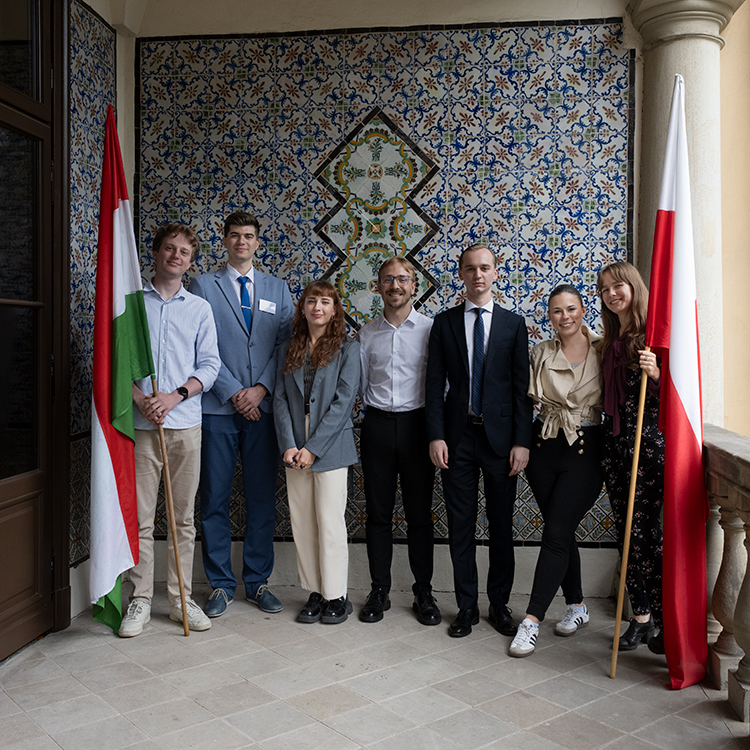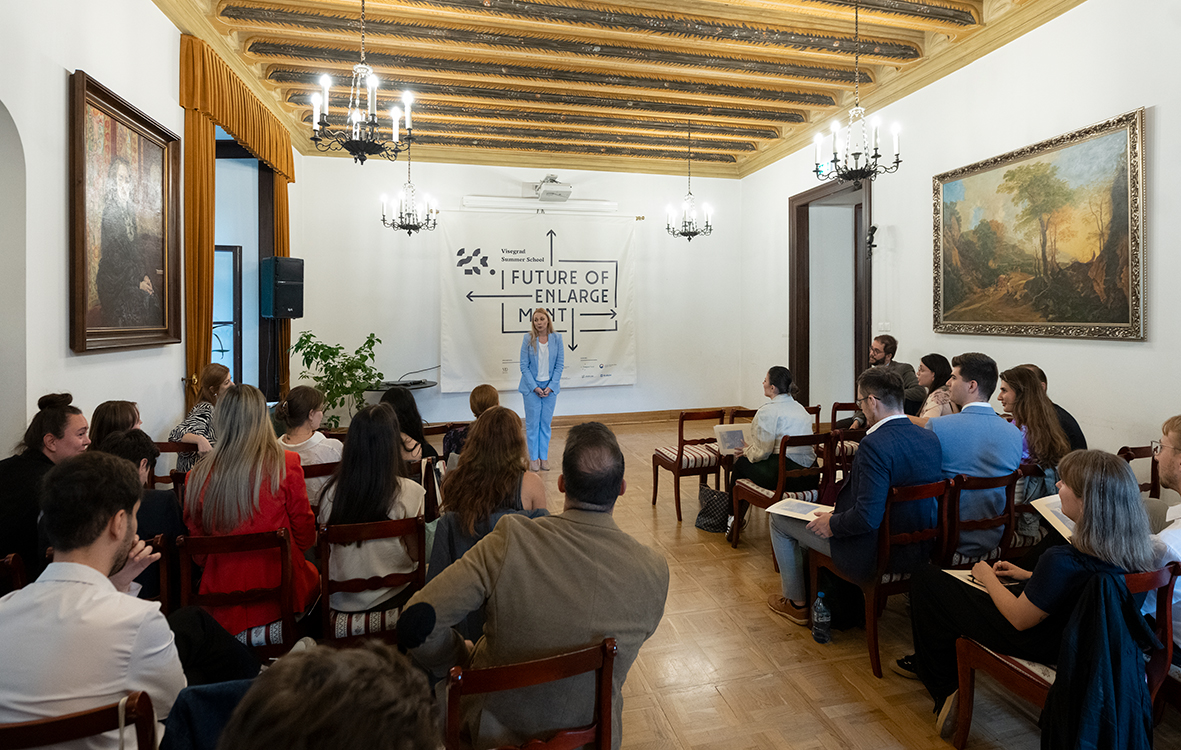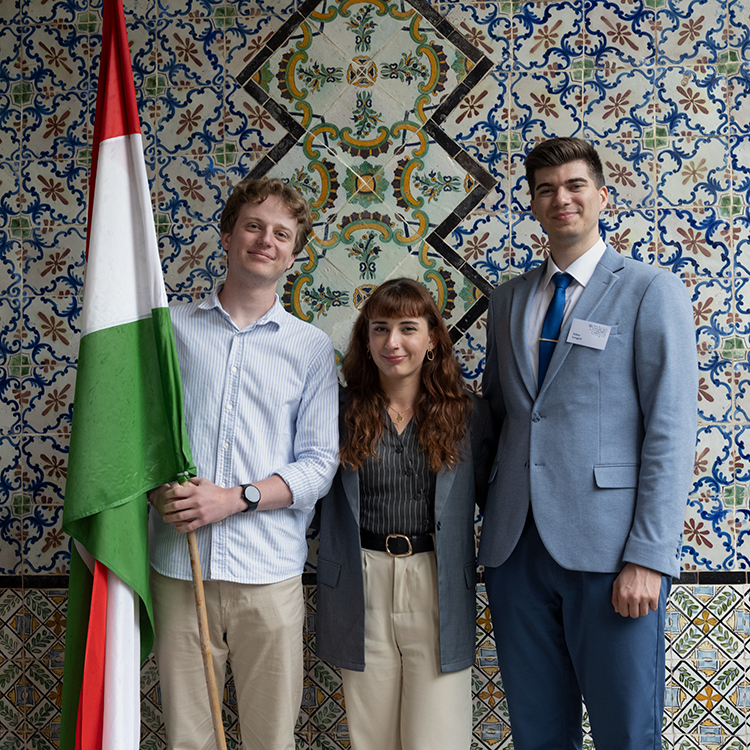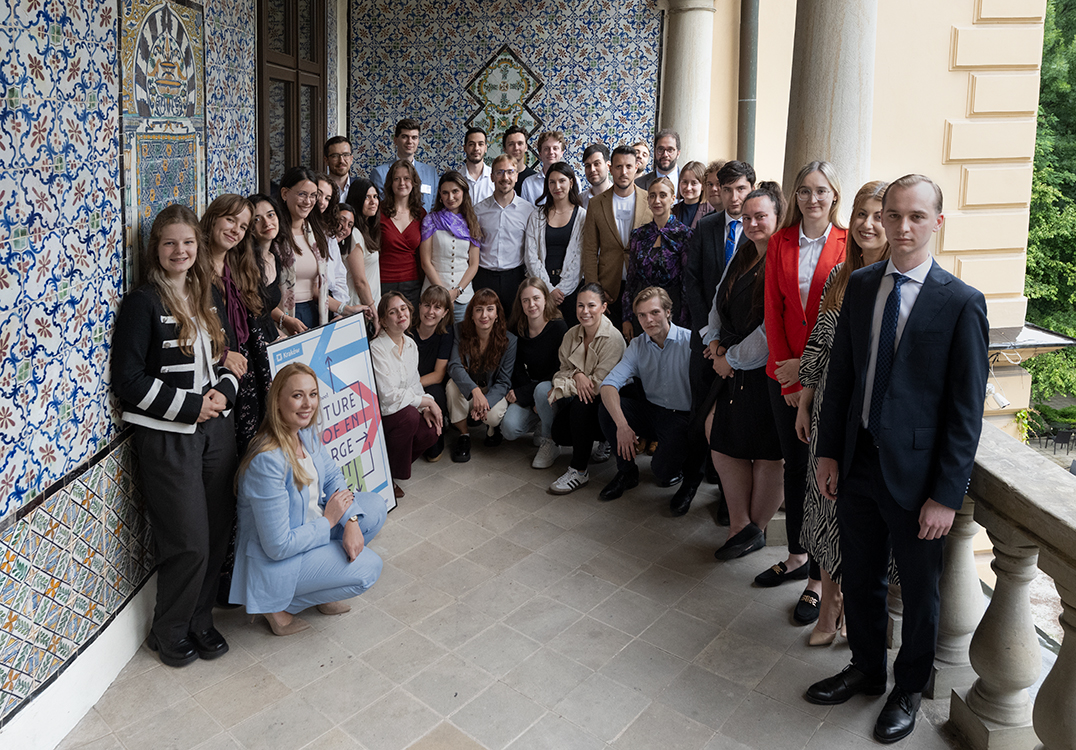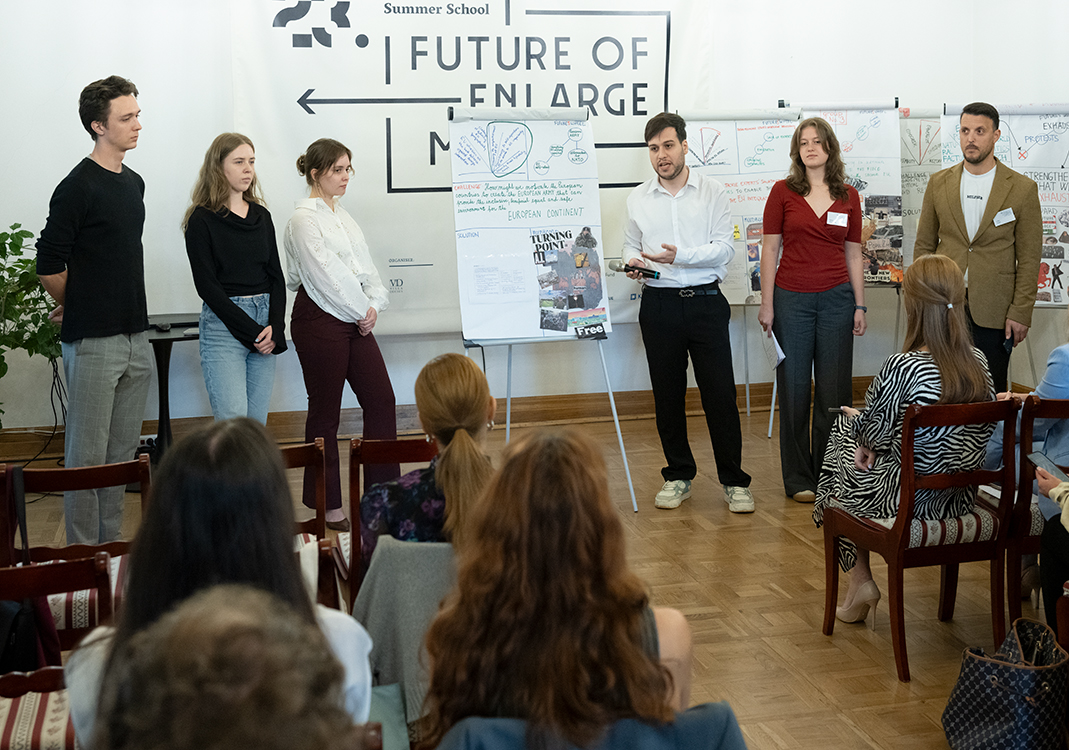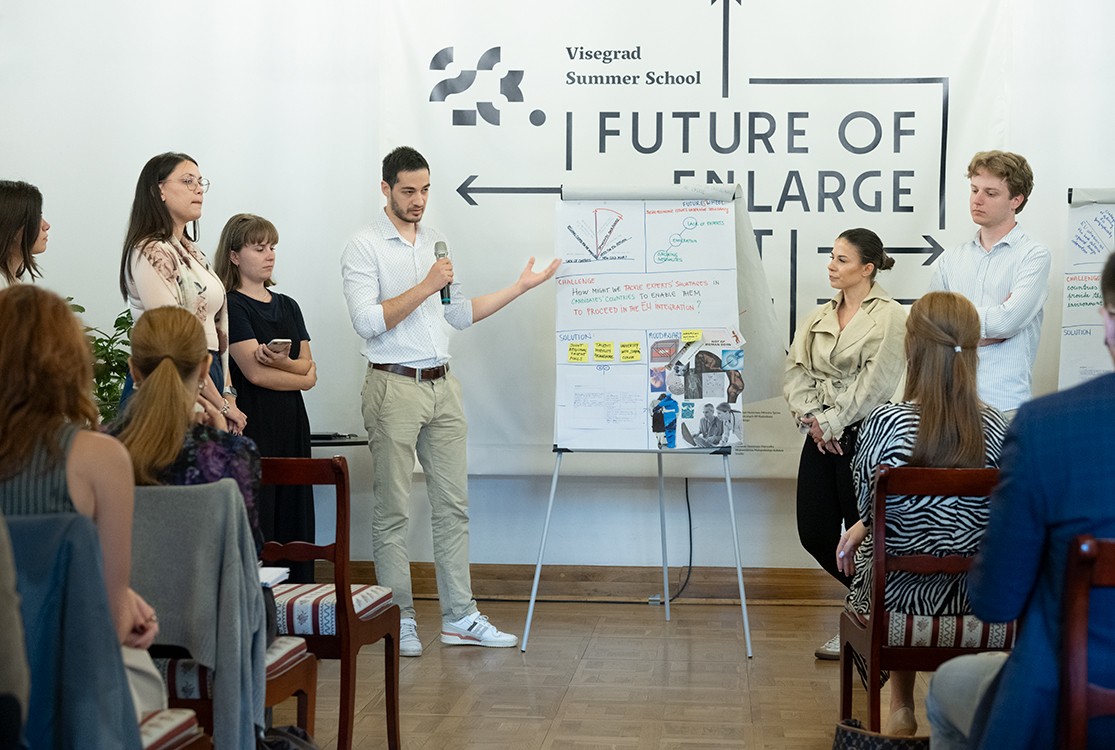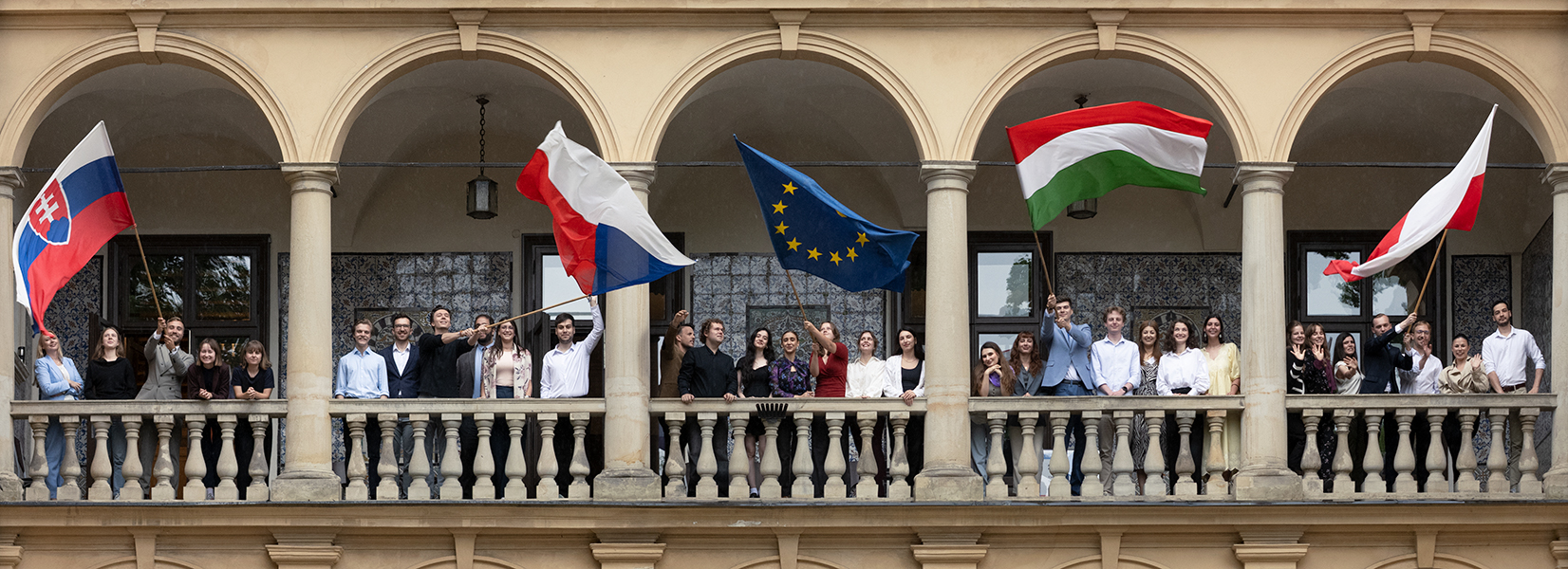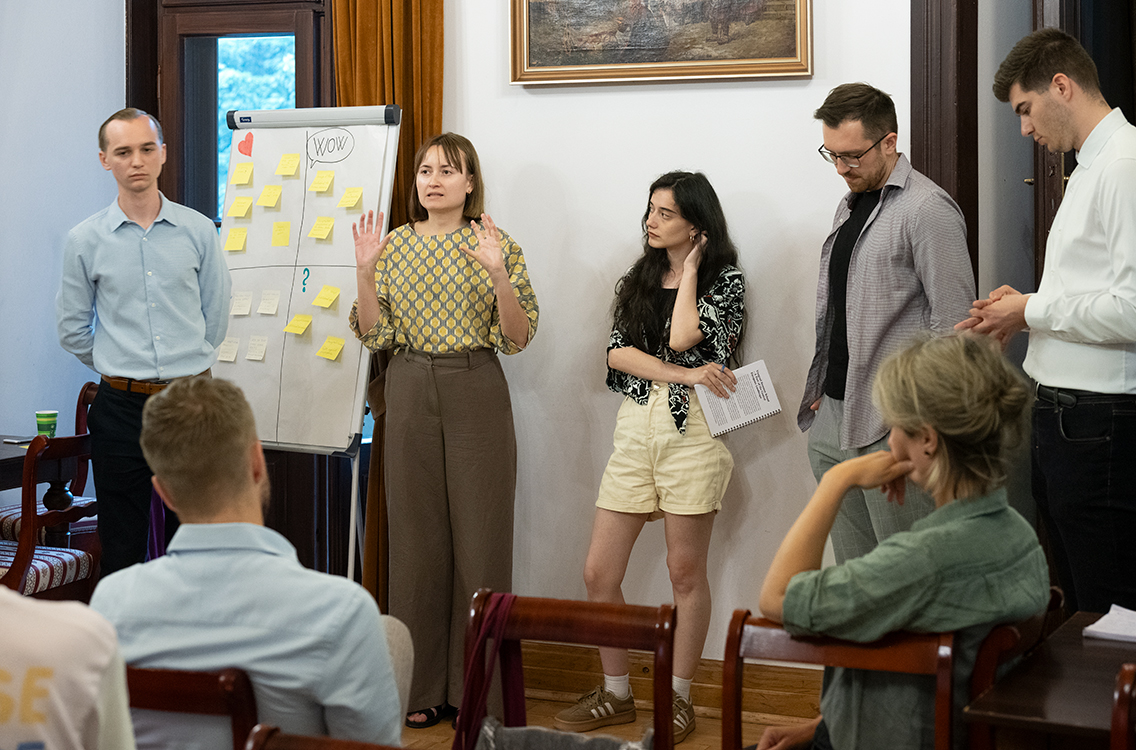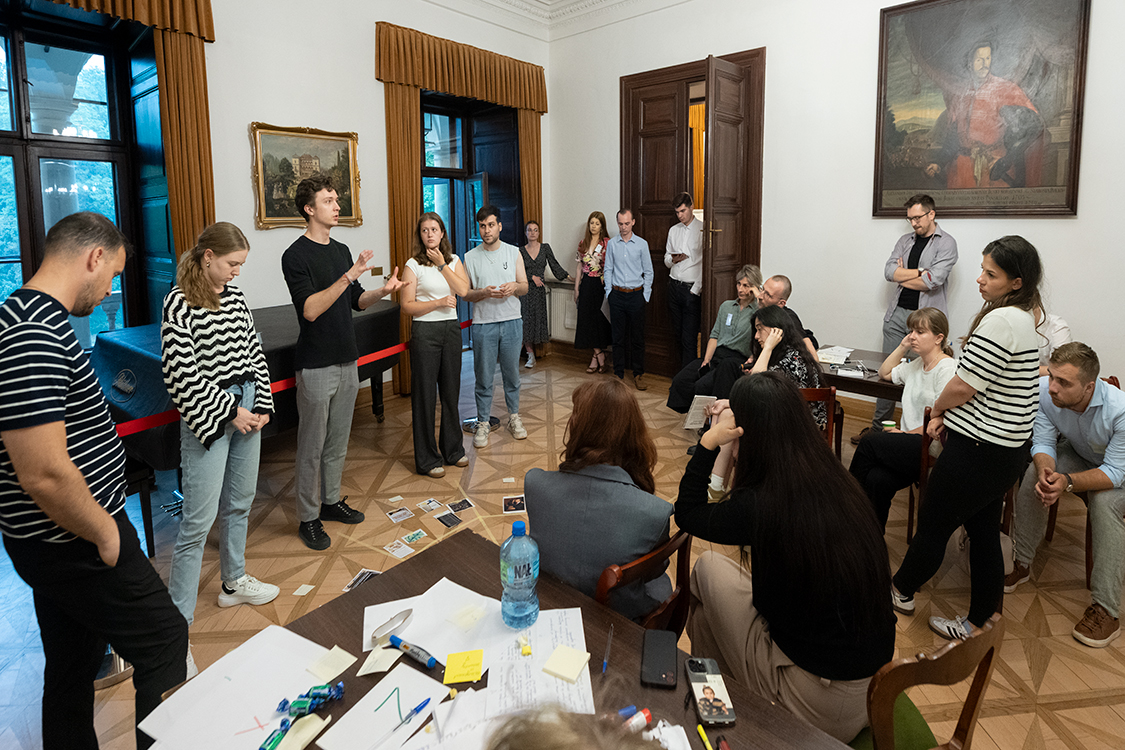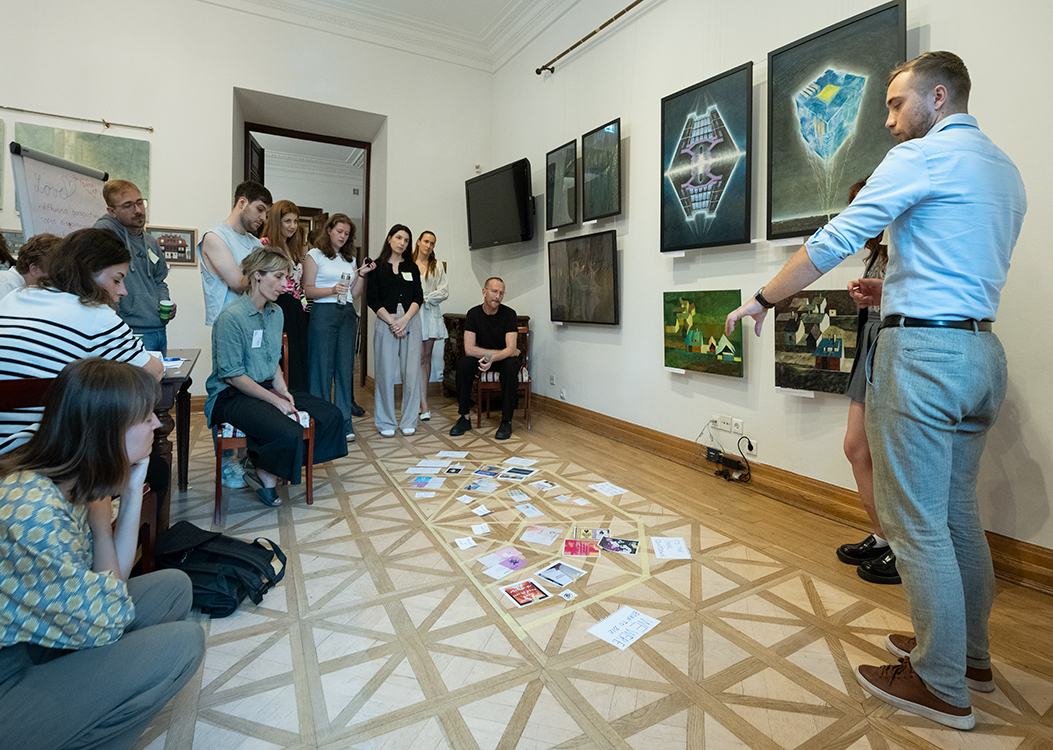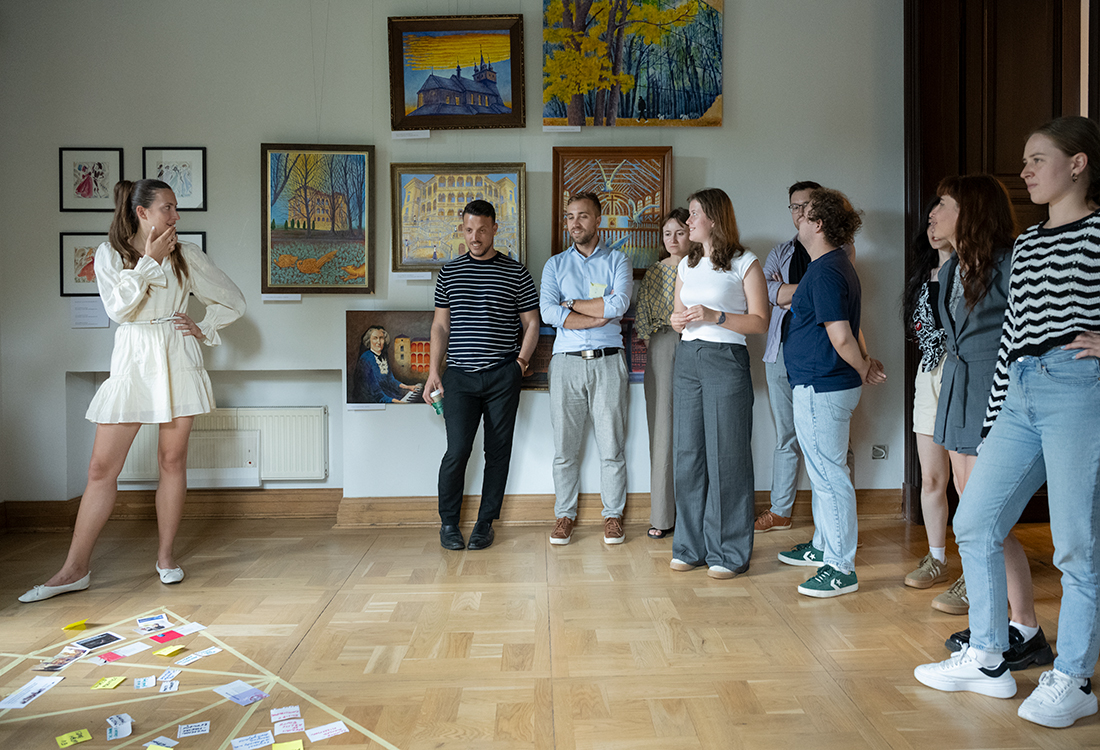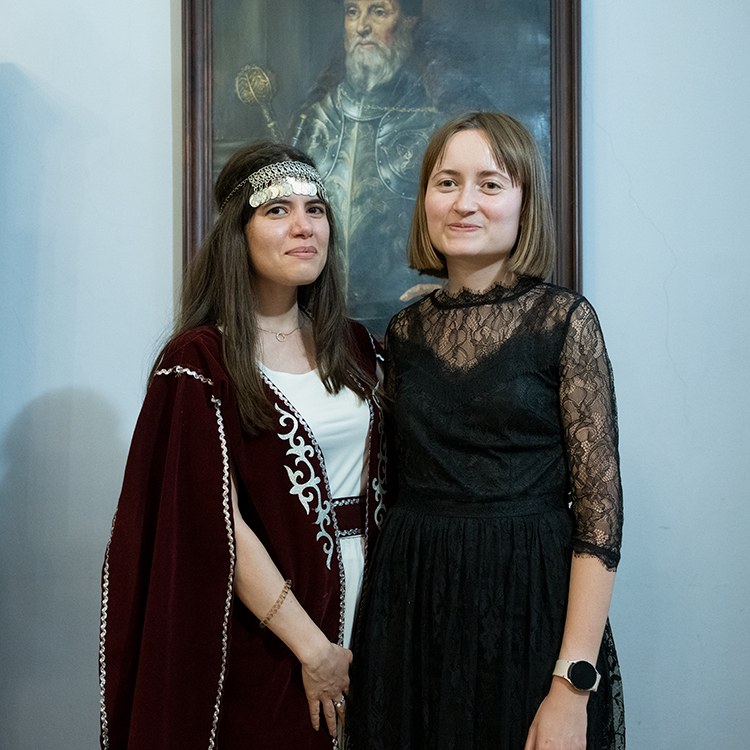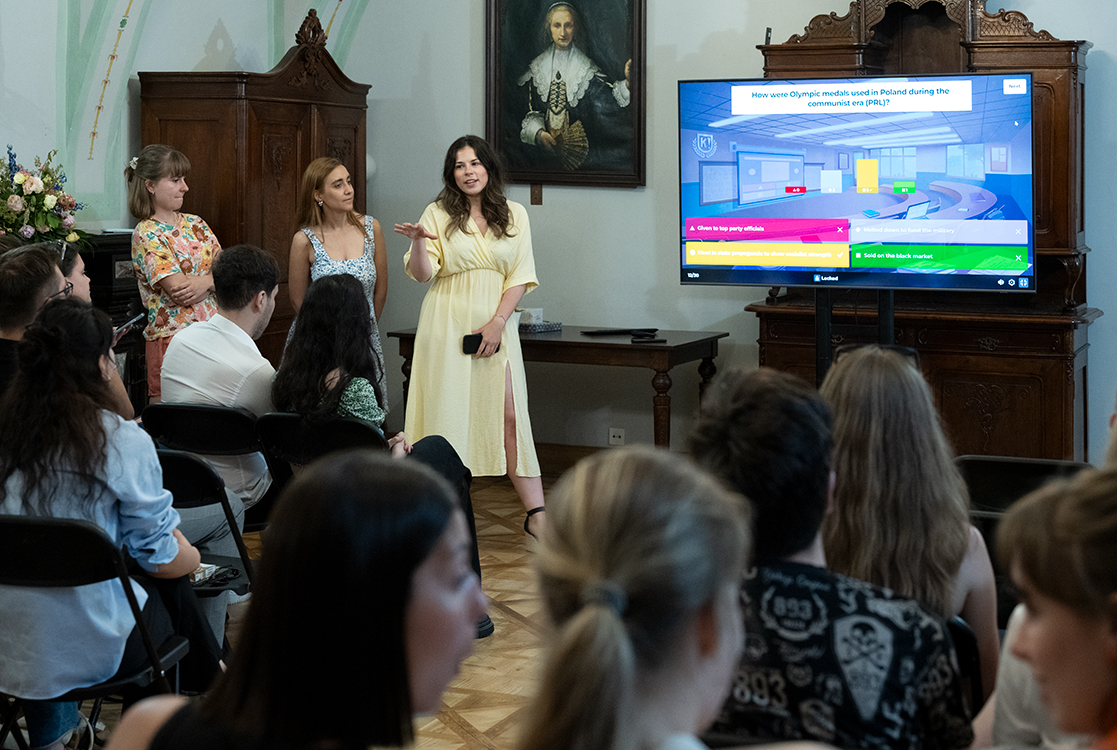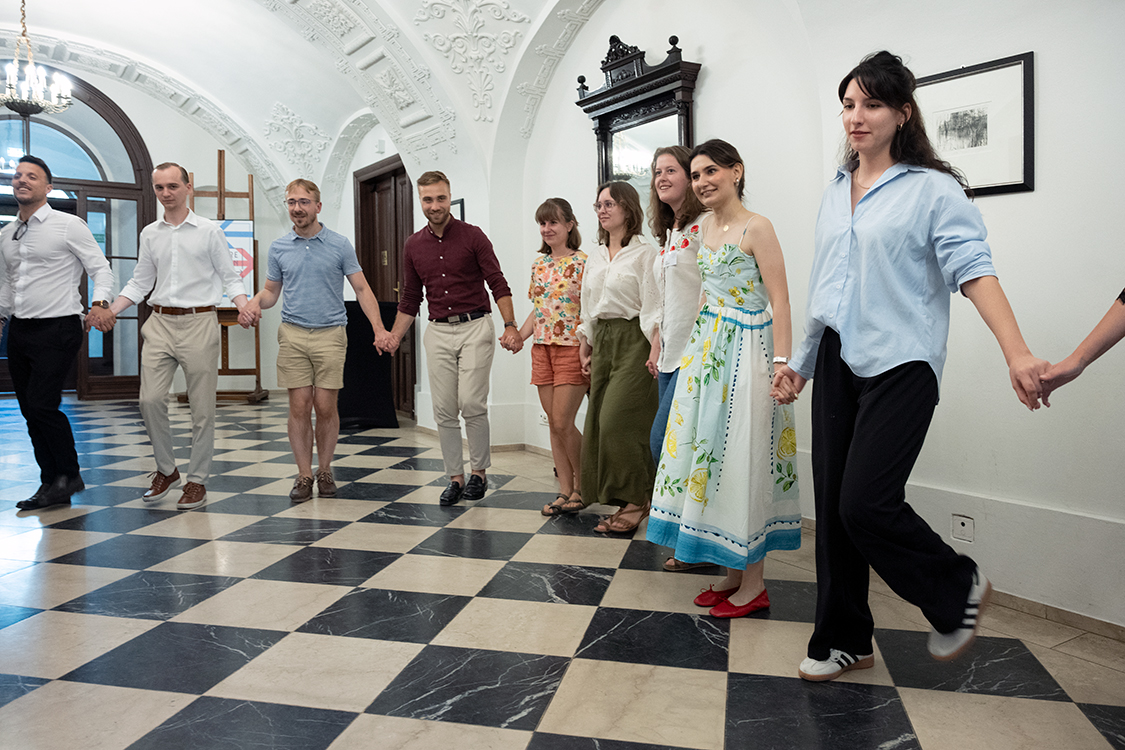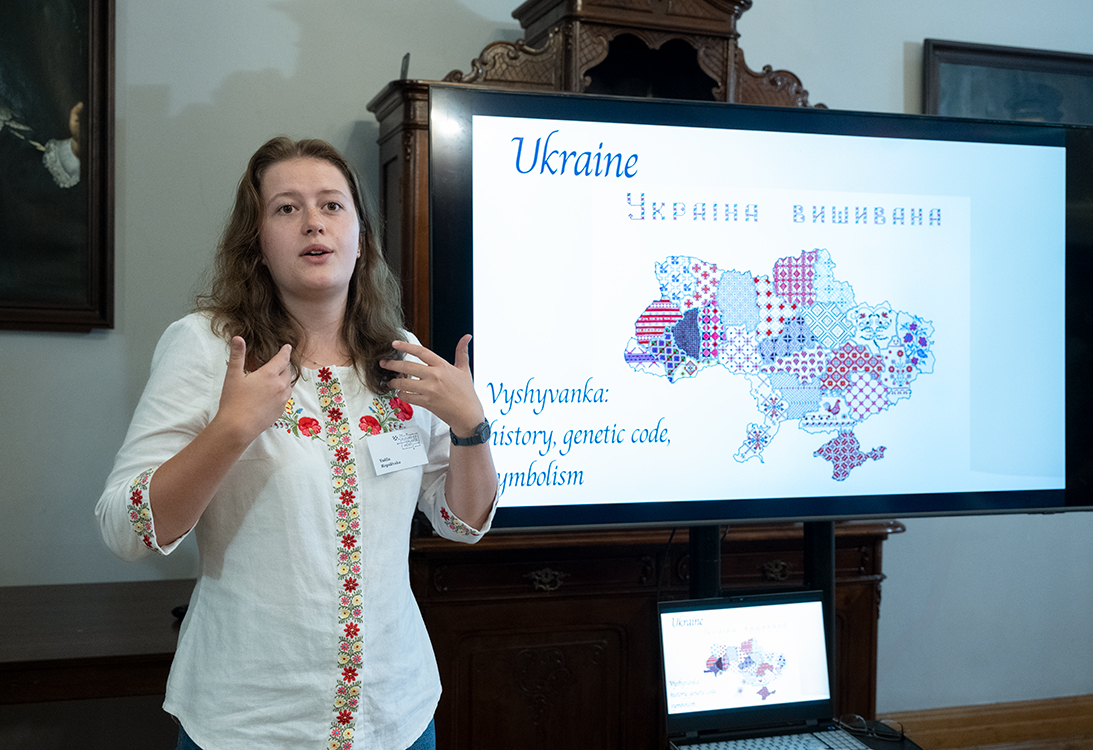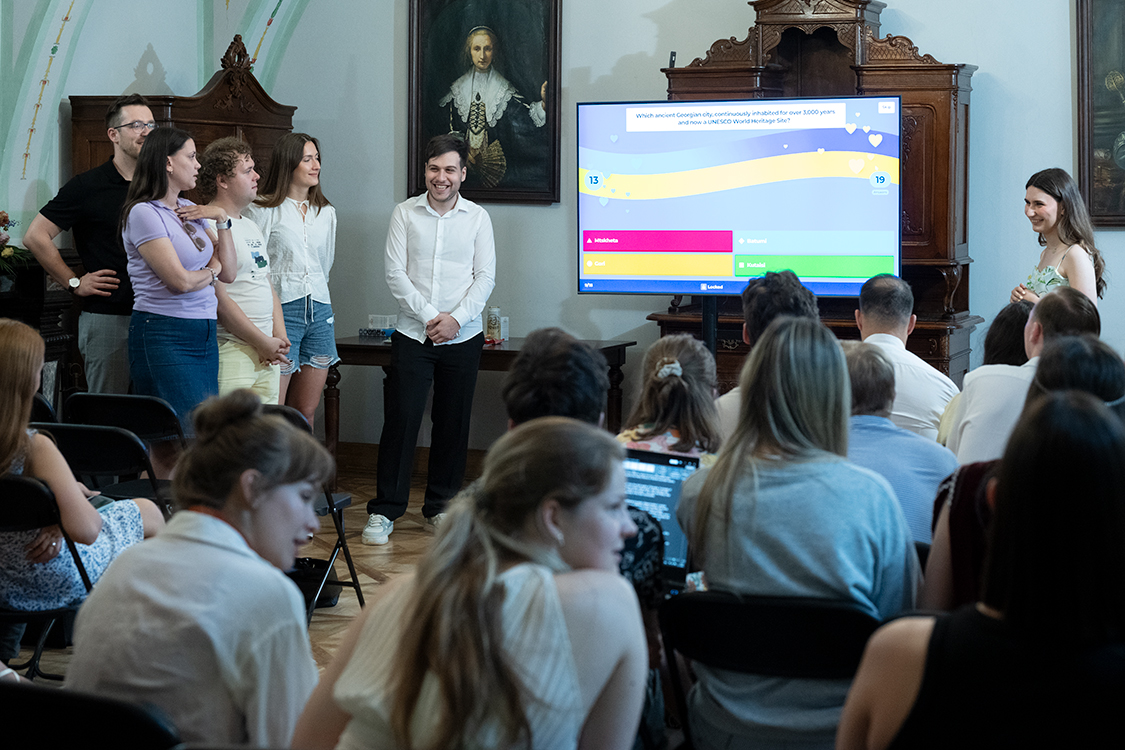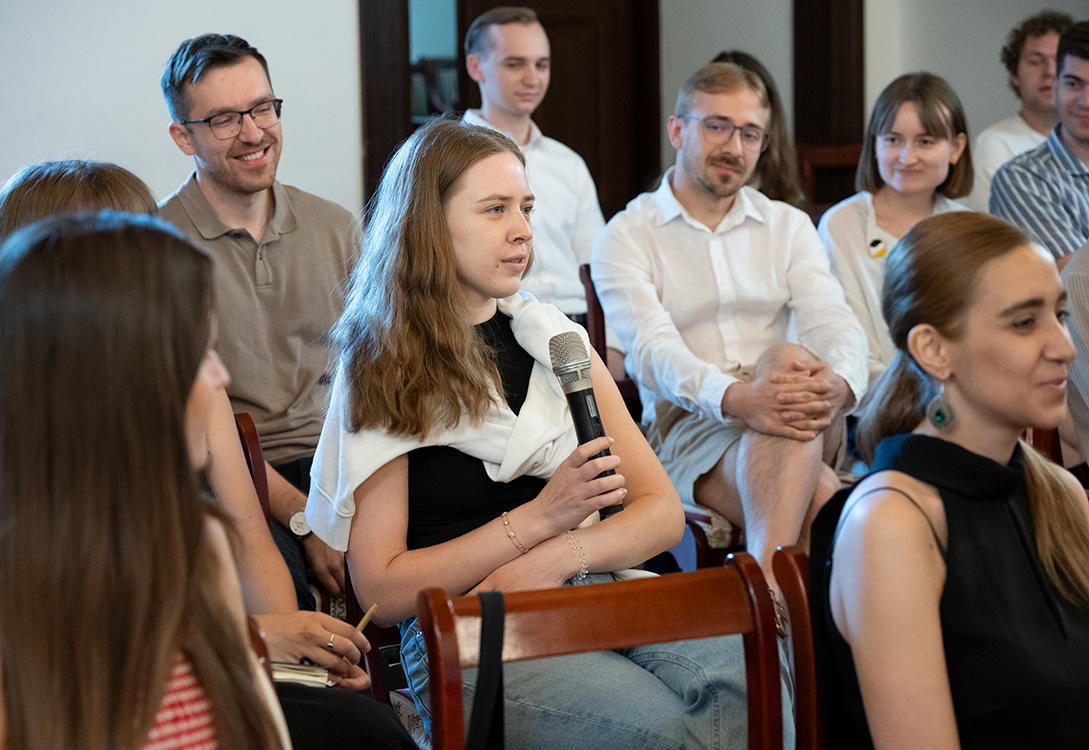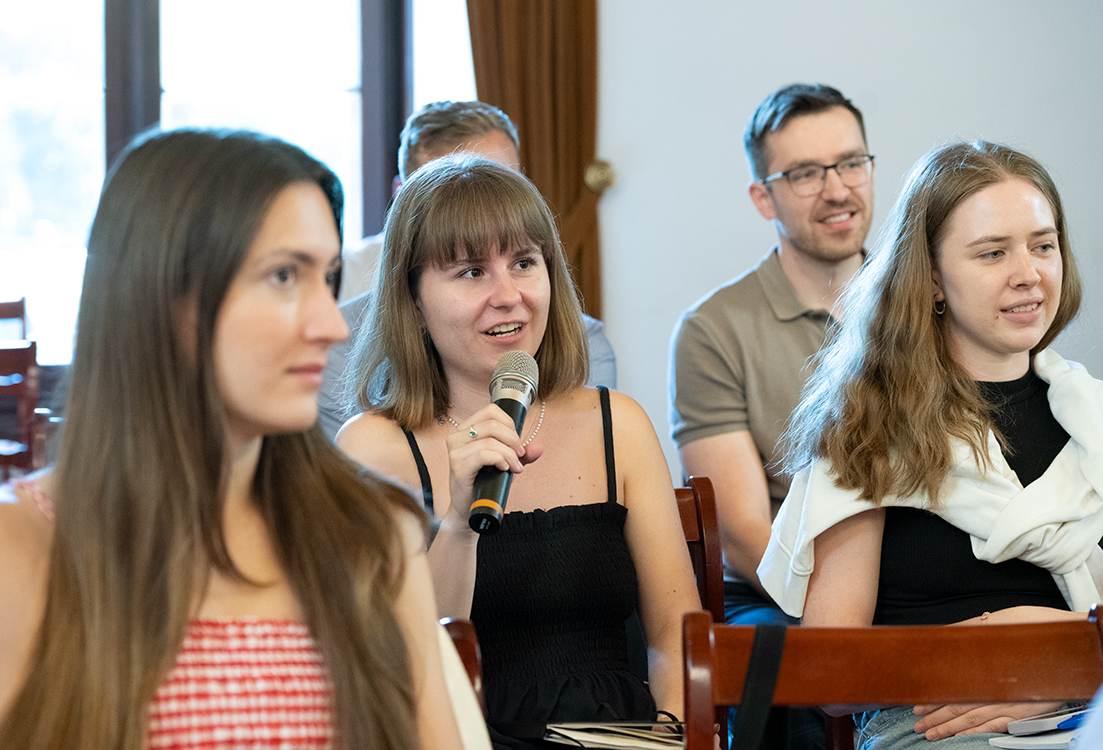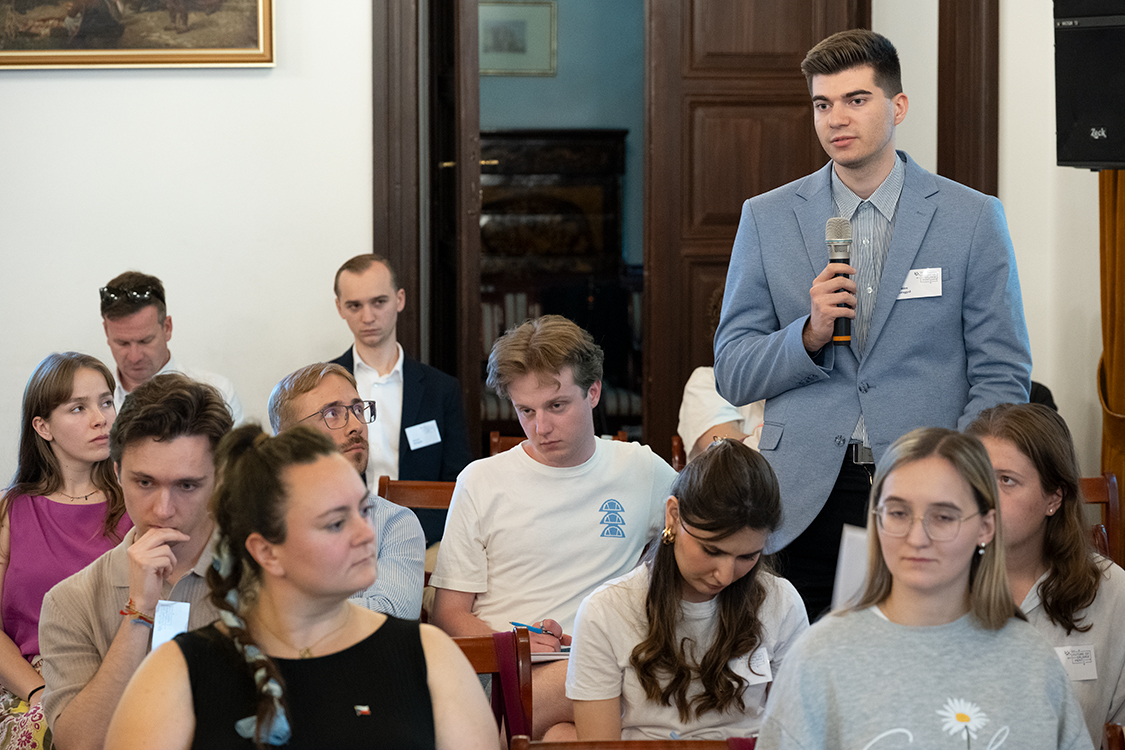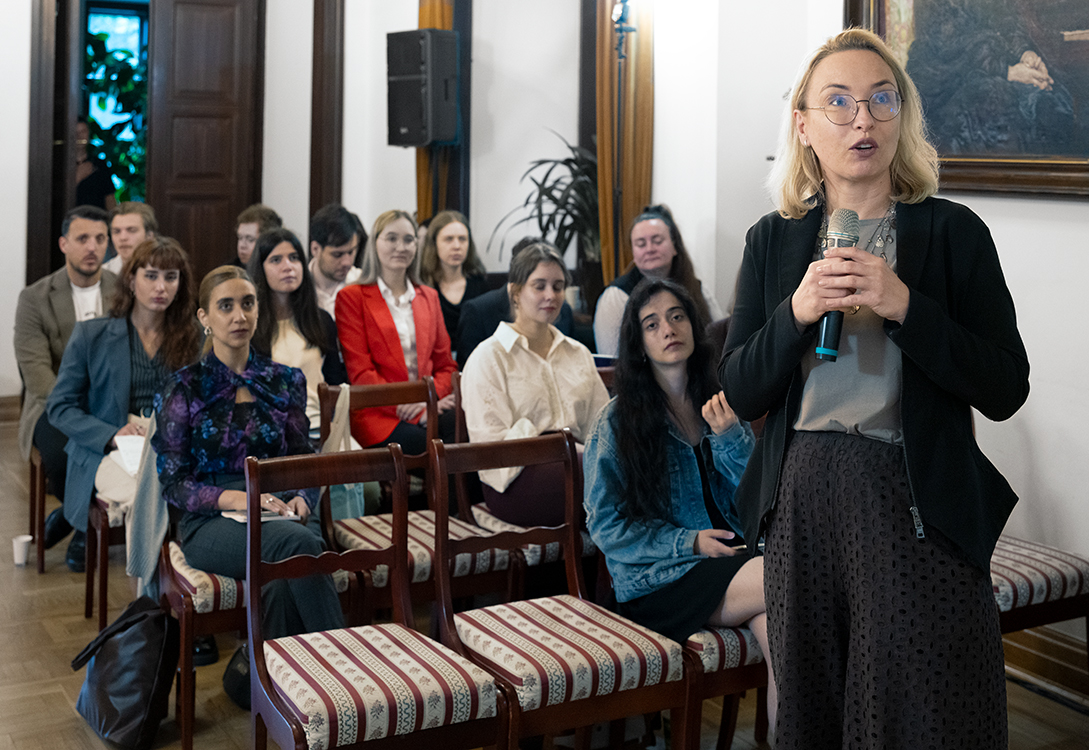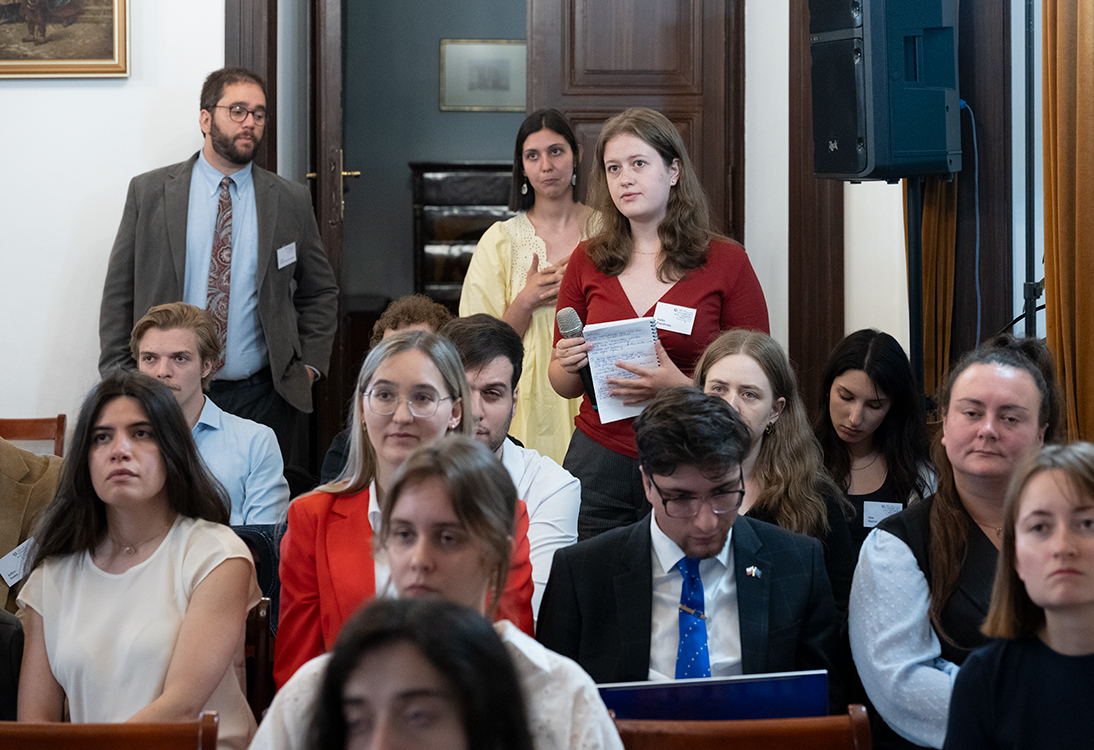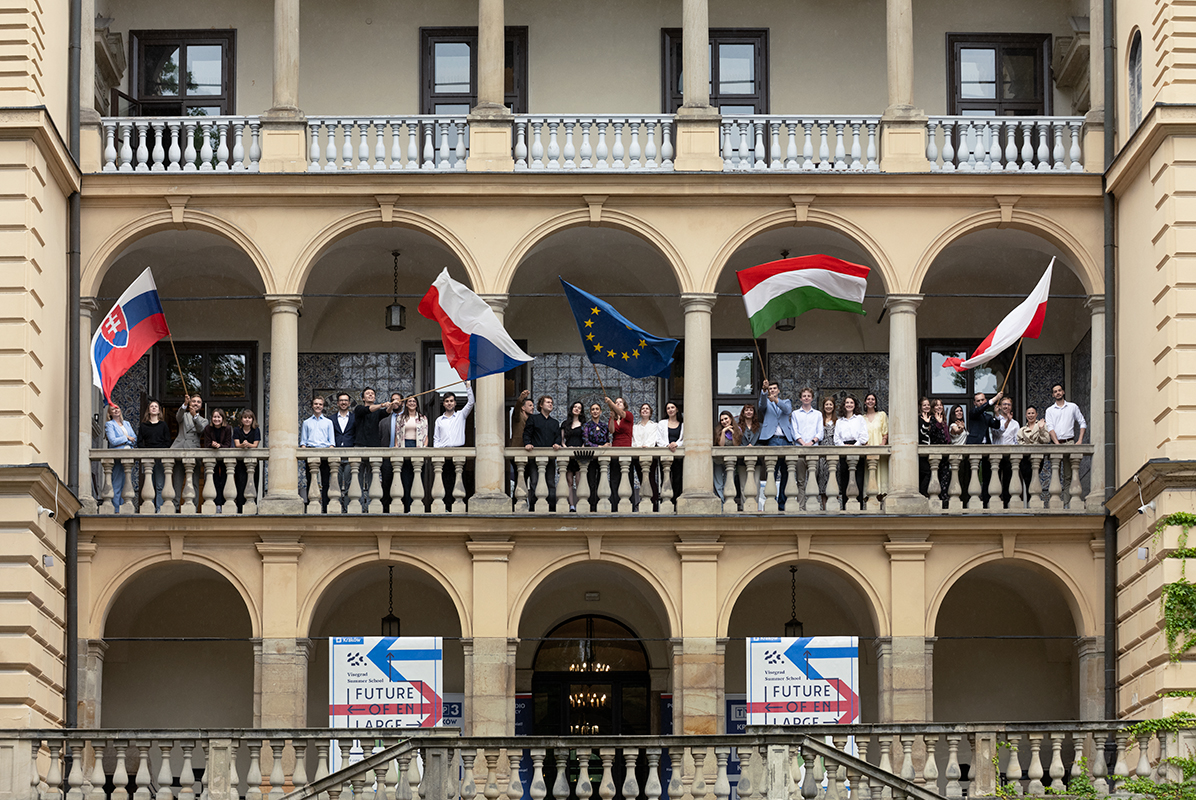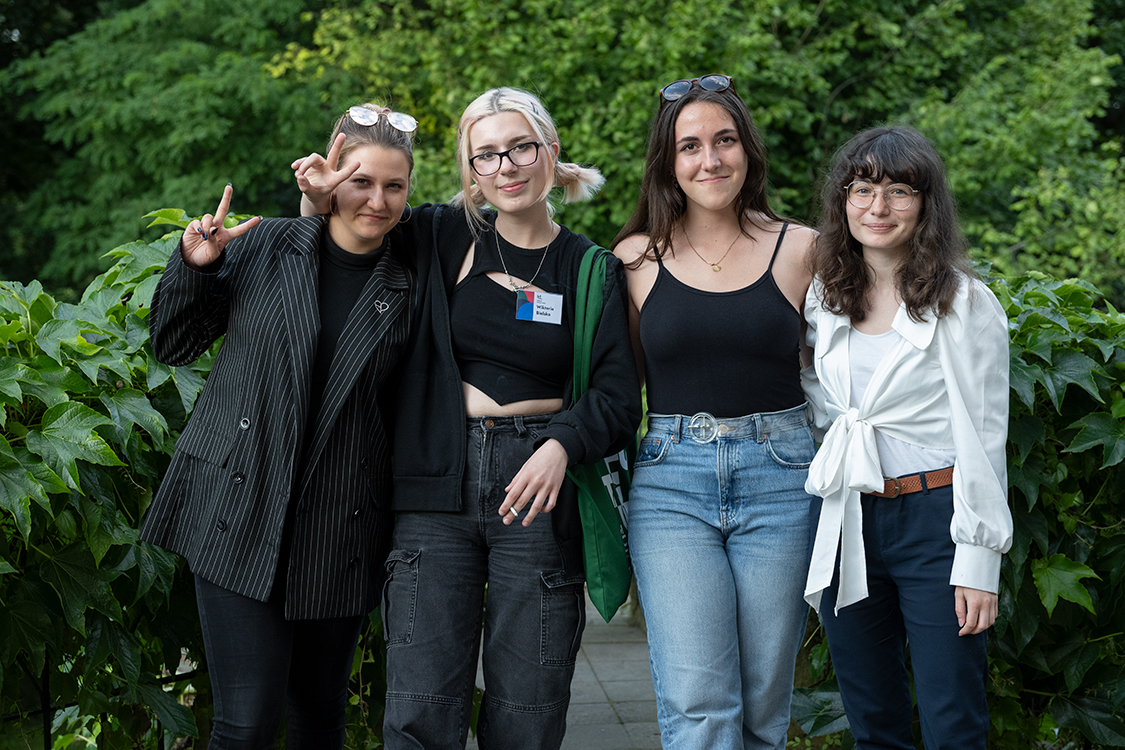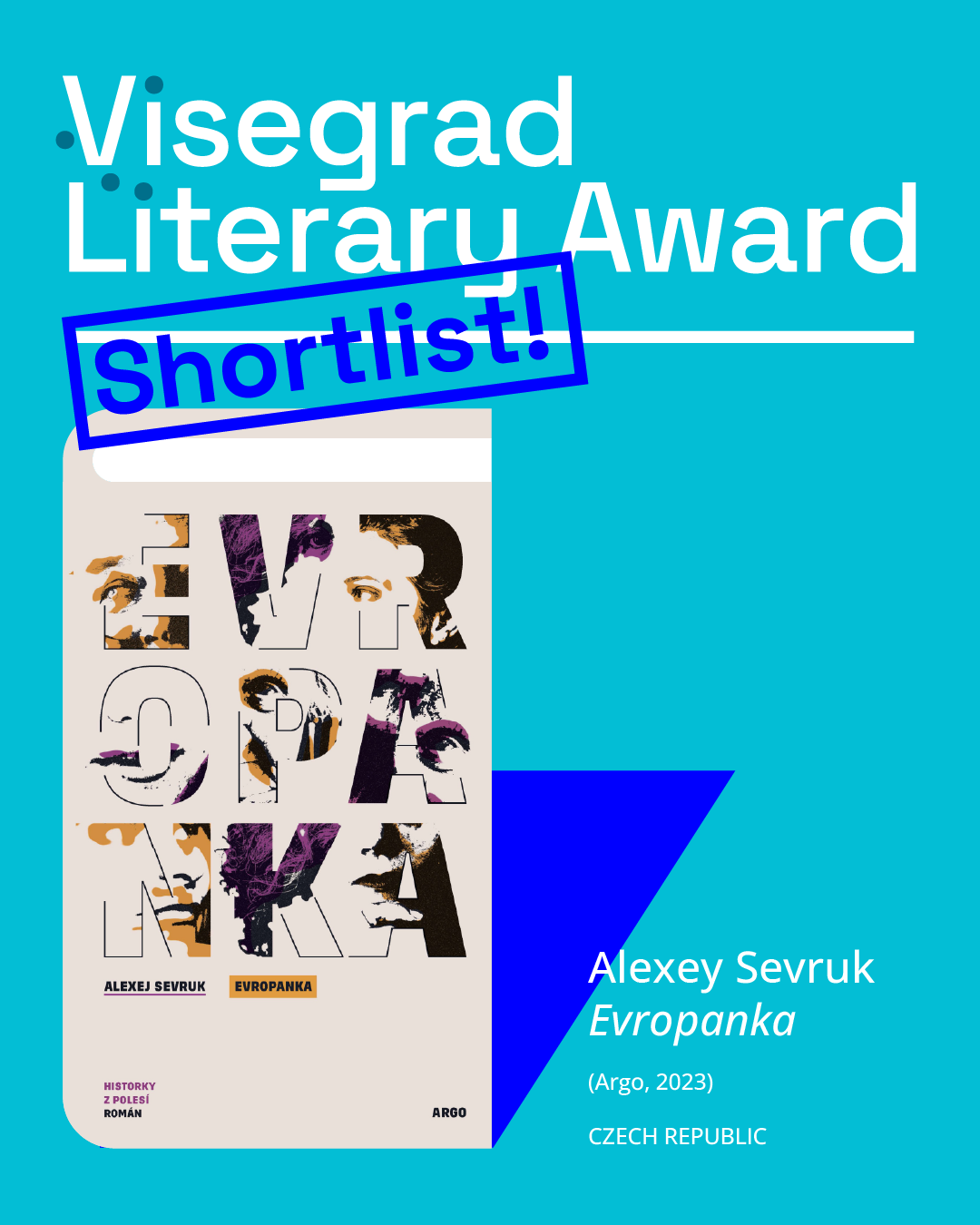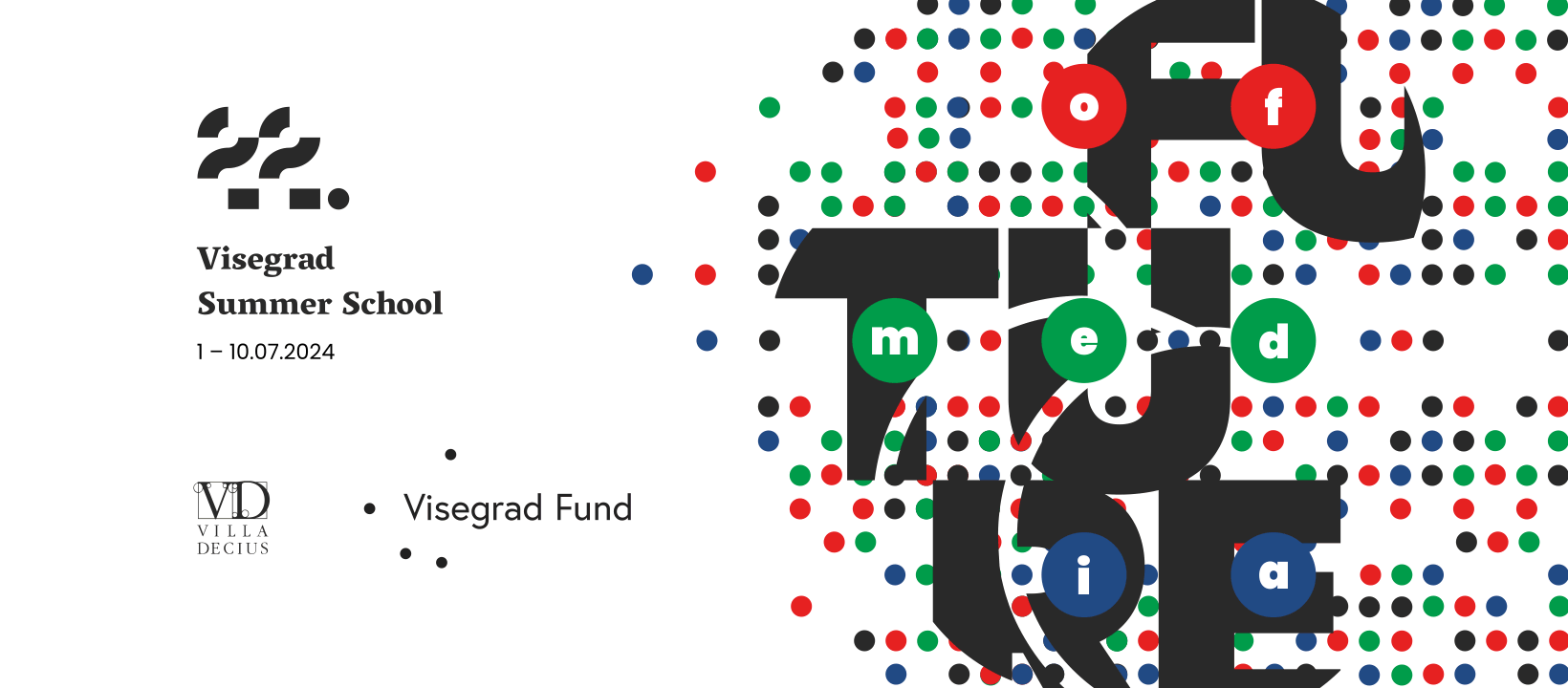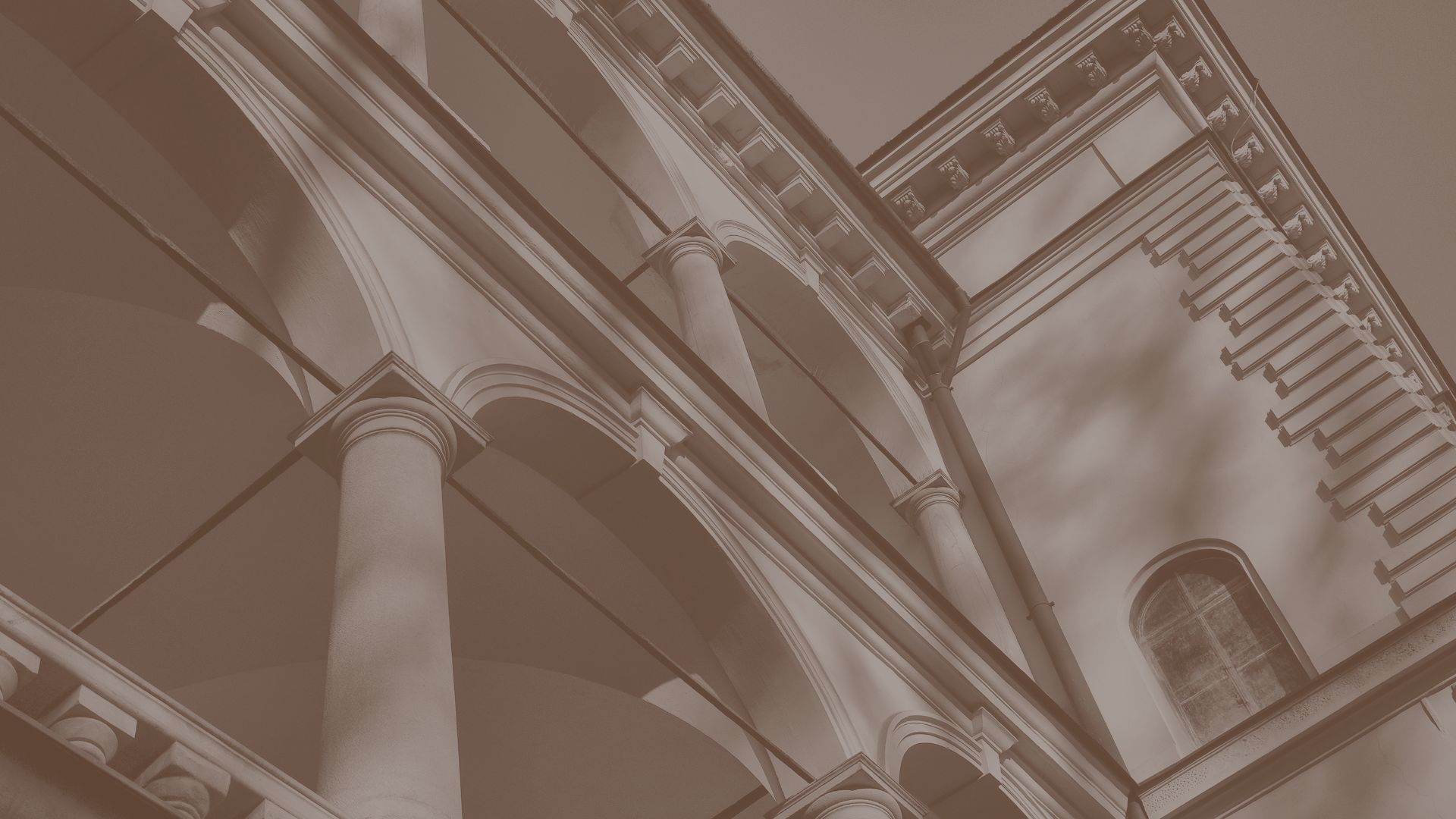Opening and First Days of the Program
The program opened with a pre-inaugural lecture by Prof. Michal Vašečka, dedicated to the concept of Central Europe and its relevance in today’s world. The event was held in the symbolic setting of the Garrison Shooting Range on Królowej Jadwigi Street in Kraków. The professor analyzed current political trends, presented public opinion research from Visegrad countries (particularly regarding EU identity), and placed the discussion within a broader cultural and historical context.
The official inauguration took place on Monday, June 30. As tradition holds, it began with the Diplomats’ Debate, which this year commemorated the 25th anniversary of the International Visegrad Fund. The debate, titled “International Visegrad Fund at 25 – A Catalyst for Regional Transformation,” brought together representatives of the diplomatic corps from Poland, the Czech Republic, Slovakia, and Hungary. The discussion was moderated by Dr. Magdalena M. Baran.
Following the debate, participants attended the inaugural lecture “Enlargement in a Changing World: Strengthening Europe’s Unity and Resilience,” delivered by Dr. Isabelle Ioannides, an expert in EU foreign policy, security, and enlargement. The day concluded with a team-building integration game.
Lectures and Expert Discussions
On Tuesday, the series of expert lectures began. Dr. Spasimir Domaradzki from the University of Warsaw discussed the prospects for EU enlargement to the East and South, analyzing both the ambitions of aspiring states and the EU’s strategic goals. Next, Prof. Dominika Kasprowicz, Director of Villa Decius, explored the impact of disinformation on the integration process, drawing from an analysis of Polish public discourse.
The day continued with a lecture by Prof. Paweł Kowal, Chair of the Council for Cooperation with Ukraine under the Prime Minister of Poland. He discussed current challenges and opportunities in Polish-Ukrainian relations, particularly regarding the reconstruction of Ukraine and European solidarity.
The day ended with an introductory lecture to the Future Literacy workshops, led by Agata Bisping and Marcin Maciejewski, during which participants were introduced to the principles and methodology of futures studies.
On Wednesday, Balázs Jarabik, diplomat and political analyst, examined the impact of Russia’s aggression against Ukraine on the Eastern Partnership countries. The next lecture, by Gjergj Murra, Director of the Western Balkans Fund, focused on the role of the Western Balkans in the future of the European Union.
Dr. Natasza Styczyńska addressed EU Enlargement Through Balkan Eyes, highlighting the region’s diverse political, social, and economic perspectives. Dr. Michal Vit analyzed the Czech Republic’s approach to EU enlargement policy in the Balkans.
Regional Reflections and a Global Perspective
On Thursday, Giorgi Meladze, lecturer at Ilia State University in Tbilisi, delivered a lecture titled “What Went Wrong with the Political Establishment of Georgia?” This was followed by Prof. István Zsolt Benczes of Corvinus University in Budapest, who discussed economic populism in the context of Visegrad countries.
In the evening, the Multicultural Evening took place, during which participants presented their countries — their culture, politics, cuisine, and history — creating a vibrant space for mutual understanding and exchange.
On Friday, Prof. Adnan Huskić from the University of Sarajevo addressed the challenges facing countries like Kosovo, Serbia, and Bosnia and Herzegovina in the context of EU enlargement. Dr. Joseph Abodakpi delivered a lecture titled “Rethinking Global Governance: Emerging Powers and Trends,” outlining the changing structure of global governance and the growing influence of new actors — from corporations to civil society organizations.
The day concluded with a study visit to the Galicia Jewish Museum, where participants joined the workshop “Confronting Moral Dilemmas: War and the Holocaust,” led by Dr. Katarzyna Suszkiewicz. The workshop served as a thoughtful prelude to Saturday’s visit to the Auschwitz Museum, offering a profound moment of reflection on Europe’s shared history and heritage.
On Sunday, July 6, participants explored Kraków’s historic center during a guided tour by Paulina Skotnicka, who shared stories and secrets of the city’s Main Square and Wawel Hill.
The Future of Enlargement: Workshops and Presentations
The second week began with a two-day Future Literacy workshop, during which participants — divided into five interdisciplinary groups — explored trends, risks, and uncertainties related to the future of EU enlargement. Using methods such as context mapping, future wheels, and creative visual tasks, they examined the influence of social, technological, and political forces on the future of European cooperation.
The workshops were not only conceptual but also strategic. Participants developed shared visions, practiced navigating uncertainty, and prepared final presentations.
On Wednesday, July 9, the final day of the program featured a special session with Prof. Marci Shore, a historian of Central and Eastern Europe and professor at Yale University. She joined participants online to deliver a lecture titled “The Task of Central Europe in Our Mutilated World”, followed by a brief Q&A session.
Immediately afterward, the VSS Future Laboratory commenced, where participants presented the outcomes of their group work — future scenarios, foresight-based concepts, and bold ideas related to the future of EU enlargement. Topics included the future of civil society, European security policy, leadership models, and the use of AI in political life.
The day — and the entire program — concluded with the graduation ceremony, led by Aleksandra Szymańska-Niekłań, the Coordinator of the Visegrad Summer School.
We would like to express our gratitude to our esteemed donors, the International Visegrad Fund, Ministry of Foreign Affairs of the Republic of Korea as well as Grupa ZUE, for their support of the Summer School, making its implementation possible. Furthermore, we extend our gratitude to our indispensable partners: the Václav Havel Library, the Bratislava Policy Institute, the Cracovia Express Foundation, the City of Krakow, and the Municipality of Małopolska. Additionally, we would like to express our profound gratefulness to Polskie Radio dla Zagranicy, Krakow.pl, and TVP 3 KRAKÓW for their invaluable contribution to the extensive media coverage.
We are also pleased to announce that this year’s edition of the Visegrad Summer School has been awarded by the the Honorary Patronage of Minister of Foreign Affairs – Radosław Sikorski.
